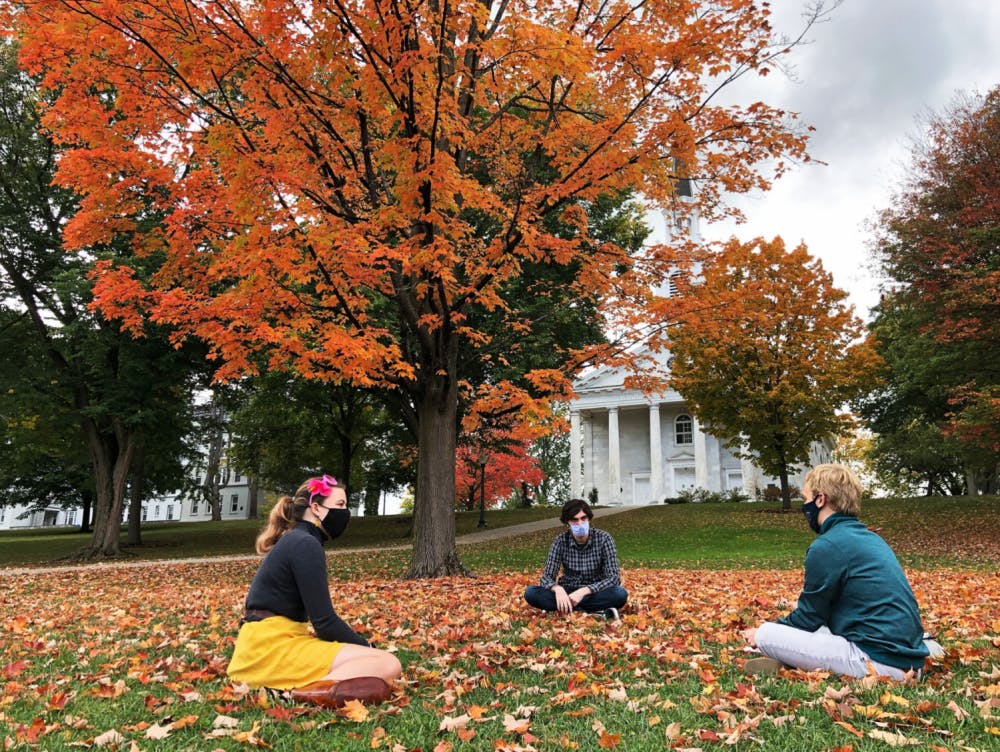Have you ever had an idea you’re so excited about that you find yourself blurting it out to all who will listen? Have you grown tired of keeping your passion for a topic bottled up like Middlebury’s iconic surplus of orange Gatorade during Phase One? This semester, a new magazine is making its way to the Middlebury Campus courtesy of Ben Beese ’21.5 and a board of eight editors. Brought to life this past September, To Whom it May Concern provides the student body with an online forum wherein they can share what they find captivating: ideas, passions, niche interests and projects.
The creation of the platform drew on and departed from several prominent existing platforms on campus. Beese intended to create a different platform than a traditional newspaper publication. “There’s a lot of things to learn about that aren’t news, which are worthwhile to talk about,” said Beese. He hoped that To Whom it May Concern would offer a place for students to share their passions with one another outside of traditional rigid formats like the Spring Symposium.
He also thought of the platform as similar to #MeetMidd, though he said To Whom it May Concern has “an intellectual way of engaging and exploring the diversity of this campus: what people do and the experiences they have.”
As of now, the existing articles on the To Whom it May Concern page include decolonizing museums, teaching mathematics as a language and how this can combat math anxiety, creating social solidarity in times of Covid and connecting ecofeminism and mosquitos.
Beese emulated how the Local Noodle pulls people together and works together as an institution that attracts campus-wide interest. The editorial board makes the major decisions for how to best grow their platform by accepting new people who wish to contribute to the magazine. Beese terms their process as democratic and collaborative.
“We wanted to make this publication accessible to everyone, even if someone doesn’t identify as a writer or isn’t as comfortable with writing,” said Beese. According to him, some board members work as writing tutors at the college and can provide support for writers regardless of their skill, since the platform zooms in on their ideas instead of their writing style.
“What we were trying to emulate was the type of conversations you would have in a Proctor booth: really educated conversations on really important topics,” Grace Hering ’21.5, the publication’s treasurer, said. According to Hering, people lacked a wider audience to share these conversations with outside of their friend groups in the past but the publication can fill that void.
“I really admired Ben’s vision in seeing an absent space on campus and knowing that he could fill it. There were so many times I thought, ‘I wish I could bring this to campus,’ but I never did anything about it. And it takes a special kind of person to go out and do it,” Hering said.
Board member Nimaya Lemal ’21.5 discussed her experience writing for the publication in September. “I wrote an article about how in this era of separation and social distancing, there has been a huge influx of social activism and questioning what is this country we live in,” Lemal said of her piece “Togetherness in the summer of separation.” In the article, Lemal explores how the pandemic gave people’s lives a pause, which has been generative towards figuring out who we are and what we want for the future.
“I think this publication is a chance to have interesting conversations and to put out to the community what you are passionate about in a format that really speaks to you. It memorializes what this moment at Middlebury might feel like for different students,” Lemal said.
It’s clear to Beese that he can capitalize on the nerdy side of the college and engage with interests beyond classroom settings.
“Our primary goal is to strengthen our community ties by helping understand one another better. We are hoping to highlight that so students can get to know the student body better, almost like a mirror,” Beese said.
New magazine ‘To Whom it May Concern’ spotlights student curiosity

Comments



